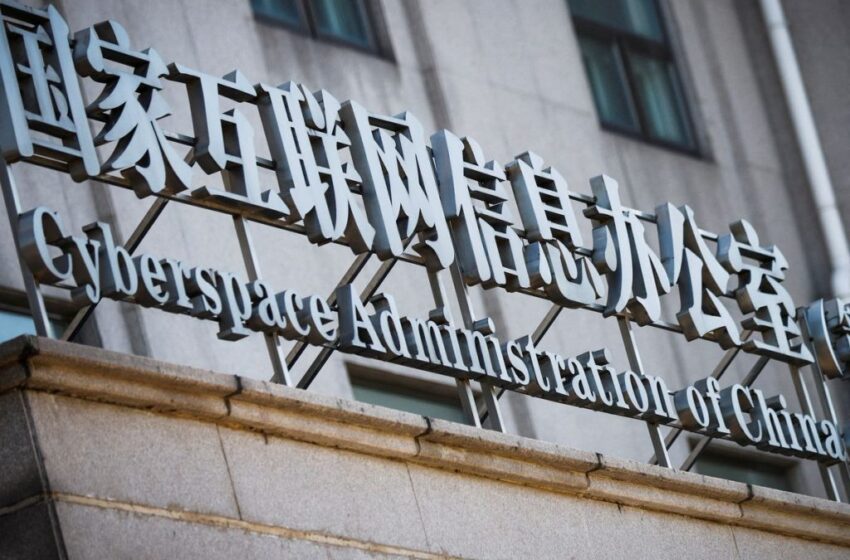
China to order cybersecurity reviews for some firms seeking overseas listings
SHANGHAI, Jan 4 (Reuters) – China said on Tuesday it would put in force new rules that will boost oversight over how its platform companies make plans to list abroad or use recommendation algorithms, in moves set to tighten Beijing’s grip over its sprawling technology sector.
The Cyberspace Administration of China (CAC) said it would from Feb. 15 implement new rules that require platform companies with data for more than 1 million users to undergo a security review before listing their shares overseas.
In a separate statement, the CAC also said it would implement new rules governing the use of algorithm recommendation technology from March 1, requiring companies to give users the right to switch off the service and increasing oversight of news providers that use such technology to disseminate information.
Both sets of rules were proposed last year and are expected to potentially impact a large swathe of companies, such as TikTok owner ByteDance, e-commerce giant Alibaba Group (9988.HK) and many more smaller players.
ByteDance and Alibaba did not immediately respond to Reuters’ request for a comment.
The CAC move comes amid a slew of regulatory changes in China over the past year that have dampened the appetite of firms to list overseas but bankers hope the new rules will provide more clarity in 2022.
The CAC did not specify whether the rules will apply to companies seeking listings in Hong Kong. But lawyers and bankers said based on its wording it appeared that Chinese companies with more than 1 million users seeking to list in the city would not be required to seek the cybersecurity review.
“Hong Kong is being treated as part of China, offshore though not foreign market, and this paves the way for more deals to return to Hong Kong,” one investment banker at a Western institution told Reuters, asking not be named as he was not permitted to speak to the media.
In Hong Kong, the Hang Seng Index (.HSI) fell 0.36% and the city’s tech index (.HSTECH) lost 1.44%.
Shares in Hong Kong Exchanges and Clearing Ltd , the operator of the Hong Kong stock exchange, were last down 1.9%. They fell as much as 2.4% following the announcement.
“If this is not retrospective then it would only affect listing aspirants and not companies already listed. Having said that, companies in the latter camp already have a lot on their minds,” said Justin Tang, head of Asian research at investment adviser United First Partners in Singapore.
The rules published on Tuesday did not specify whether the planned changes would be retrospective.
NARROWED SCOPE
The CAC first proposed the cybersecurity reviews in July, saying they would put a focus on the risks of data being affected, controlled or manipulated by foreign governments after overseas listings.
Alex Roberts, who tracks data policy at law firm Linklaters in Shanghai, said the new rules appeared to have shrunk the scope of the companies likely to be affected by the changes, as compared to the proposal made in July.
“The most significant change in these cybersecurity review measures seems to be the narrowing of the review’s application to only critical information providers, data processors that may impact national security, or platform operators holding over 1 million individuals’ personal data,” said Roberts, but he added the rules still do not provide ample specificity as to what types of companies will be affected.
“This ambiguity will be a real concern for successful multi-channel businesses in China’s digital economy given the current uncertainty of the review process.”
The CAC changes come after a slew of recent moves by Chinese authorities to boost oversight over Chinese companies’ offshore listings.
China’s state planner said last week it would demand regulatory clearance for overseas Chinese listings in sensitive sectors such as internet news and publishing.
Separately, the China Securities Regulatory Commission (CSRC) said on Dec. 24 it would require companies wishing to list overseas to submit filings to the agency first for registration, under a system that also involves close coordination among various regulatory bodies.






